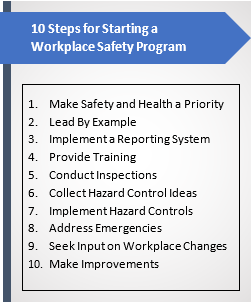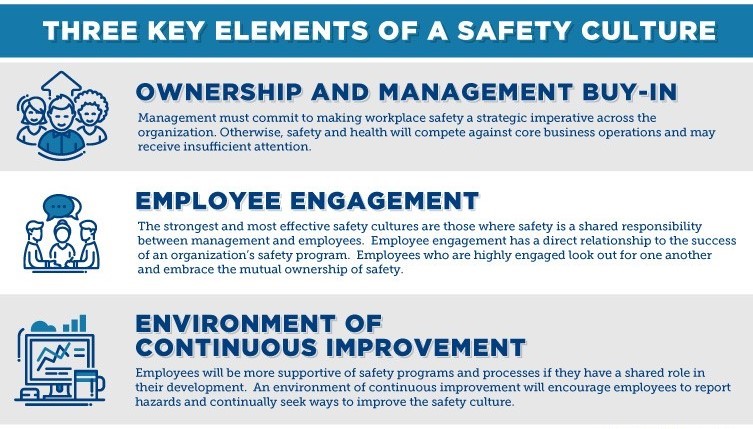Broadband Infrastructure Safety
Prioritizing workplace health and safety

All California employers must have a safety policy and injury prevention program, according to the California Labor Code Section 6401.7. Safety requirements, standards, and best practices are provided by the U.S. Department of Labor Occupational Safety and Health Administration (OSHA) and the California Occupational Safety and Health Administration (Cal/OSHA). The recommended practices provide a flexible framework for employers and workers to prioritize health and safety. Get started with the following resources to ensure the safety of workers and the public during construction, operations and maintenance of broadband networks.
For Employers
OSHA and Cal/OSHA requirements apply to internet service providers, new market entrants, contractors, and other partners in the construction and delivery of broadband service. The following elements will help you set up a new safety office, implement safety practices, and create ongoing accountability measures.

Source: Recommended Practices for Safety and Health Programs (OSHA)
For Workers
An effective safety and health program needs the meaningful participation of workers, who have much to gain from a successful program. Employees -- including contractors, subcontractors, and temporary staff -- can make the most positive impact by being involved in all stages of a worksite safety and health program.
Need more assistance? If you need help, consider contacting OSHA's On-Site Consultation Program. Consultants from the program provide free assistance to small businesses that includes establishing and improving safety and health programs. You can also watch Cal/OSHA's Division of Occupational Safety and Health - Consultation video

Learn more at https://www.whistleblowers.gov/
Safety Culture
In addition to establishing a safety program, it is equally important for employers to establish a culture that fosters shared values, actions, and behaviors that demonstrate a commitment to safety. Key factors include leadership commitment, employee engagement, and resolving unsafe conditions. In a safety culture, employees are encouraged to report safety incidents and employers promote a positive environment where mistakes are viewed as opportunities for learning, not punishment.

Education and Training
These are just a few of the available resources to assist in developing safety practices and workforces that are highly skilled and qualified for the construction and delivery of broadband service.
Useful Links
- Safety Resource Library - Safe At Work California
- Workplace Safety Resources - Safe At Work California
- A Guide to Safety Committees.pdf
- CAL OSHA ConstGuideOnline.pdf
- CAL OSHA SafetyMeetingGuide.pdf
- Fiber Optic Association Fiber Optics Safety Poster.pdf
- Safety Committees in California.pdf
- National Telecommunications and Information Administration Internet For All: Workforce Planning Guide
- Division of Occupational Safety and Health - Consultation video

